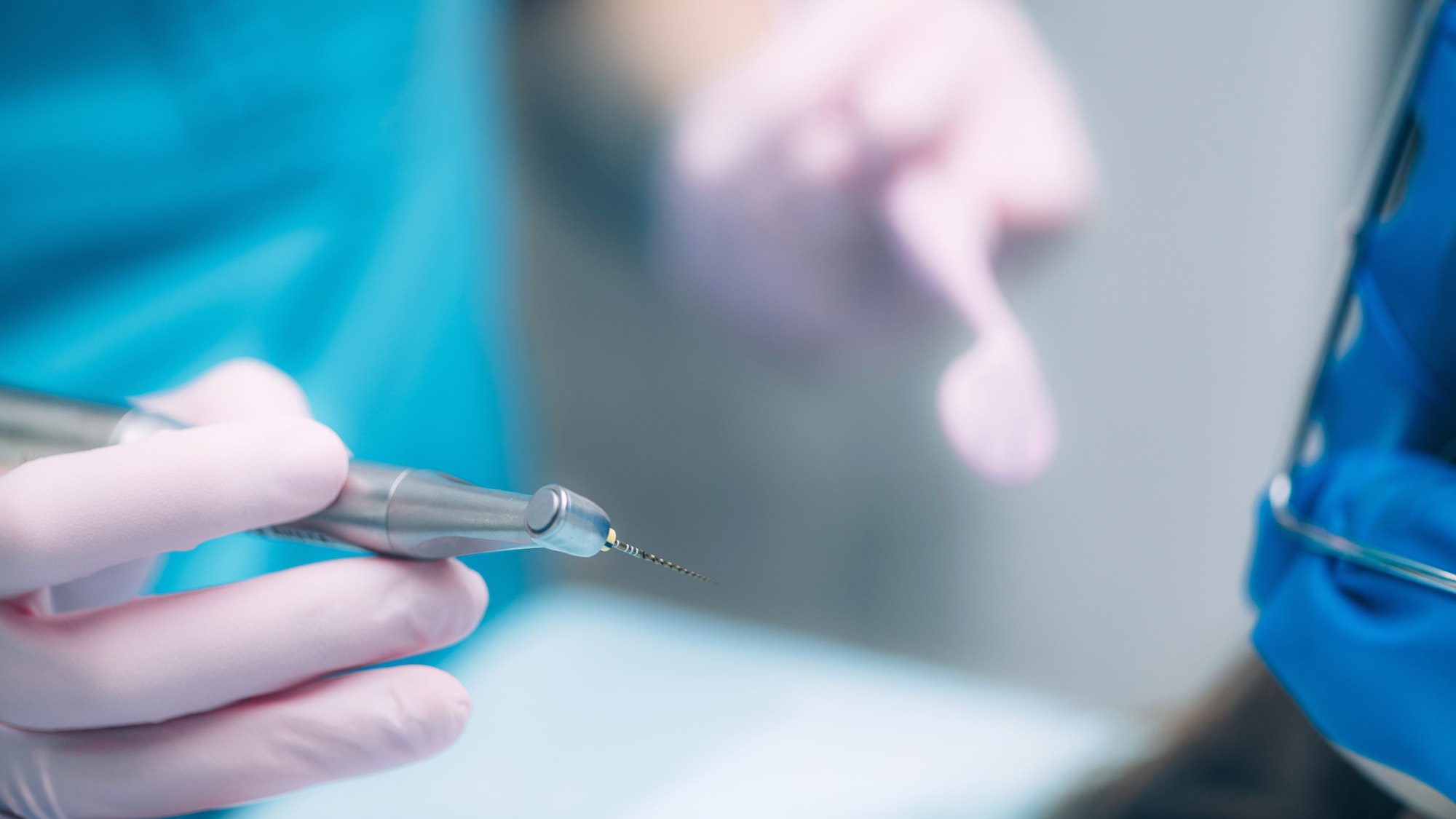ROOT CANALS

Top Root Canal Specialist
Root canals provide a safe and effective way to restore an infected tooth’s health and function. At Ontario Chino Dental Center, cosmetic, family, and general dentist Krupakar “Reddy” Yeturu, DDS, boasts years of experience performing root canals. Using advanced tools and local anesthetics, the process is quick, convenient, and virtually pain-free.
Commonly called a root canal, root canal treatment is a type of endodontic therapy that is often recommended if the tooth pulp and nerves become infected or damaged. This may occur if injury or decay reaches deep into the tooth, past the outer enamel layer. When left untreated, this type of infection and disease may cause the tooth to die and necessitate tooth extraction. To restore the health of the tooth and avoid the need for extraction, our skilled dentist will remove the infected and injured tissues from within the tooth, clean the tooth, and fill it with a medicated material. We will then cap the tooth with a restoration, such as a dental crown, to return the tooth to its original shape and structure. In most cases, a root canal can be completed in only one or two comfortable visits to our office.
Root canal treatment has a reputation for being a painful treatment. In reality, however, root canal treatment can often be completed with minimal discomfort thanks to advanced techniques, tools, and anesthesia. Our dentist, along with our entire dental team, works hard to provide you with a pleasant, comfortable experience each time you visit our office. To learn more about root canal treatment, we welcome you to contact us today. We are committed to restoring your smile’s health.
Root Canals Q & A
What are root canals?
A root canal treats damaged or infected tooth pulp — a soft substance that contains nerves and connective tissue. Pulp provides your teeth with nutrition, but it isn’t necessary for their long-term survival. Removing the infected pulp reduces the risk of further complications and prevents the need for an extraction.
When are root canals needed?
Ontario Chino Dental Center uses root canals to treat damaged or infected tooth pulp. Some of the factors known to cause pulp damage include:
- Untreated cavities
- Chips, cracks, and other types of enamel damage
- Oral trauma
- Undergoing extensive dental work
Pulp-related problems don’t always present symptoms in their early stages, but if you experience swelling, increased tooth sensitivity, or a sensation of heat in your gums, contact Ontario Chino Dental Center right away.
What do root canals involve?
At Ontario Chino Dental Center, root canals take two appointments about a week apart.
First appointment
Before recommending root canal therapy, your provider conducts an oral exam and takes oral X-rays to assess your tooth. If they determine the pulp requires removal, they administer a local anesthetic to numb your mouth.
When the anesthesia sets in, your provider carefully removes your tooth pulp. Then, they rinse the center of your tooth with an antiseptic solution and fill it with a material called gutta-percha. When the gutta-percha dries, your provider takes a series of high-resolution digital impressions with an intraoral scanner. Then, they bond a temporary crown to your tooth.
Your provider sends your digital impressions to a dental laboratory. The technicians at the lab use your impressions to design and manufacture a permanent dental crown.
Second appointment
About a week later, when the laboratory completes your permanent crown, you return to Ontario Chino Dental Center. Your provider once again administers a local anesthetic, removes your temporary crown, and bonds the permanent one in its place.
What is the recovery process like following a root canal?
Following a root canal, many people experience mild swelling and increased tooth sensitivity. If the discomfort affects your quality of life, take over-the-counter pain medication or apply an ice pack to your cheek. Eat only soft foods like soup or scrambled eggs for the first 24-48 hours. Continue to brush and floss, but be careful around the new crown.





